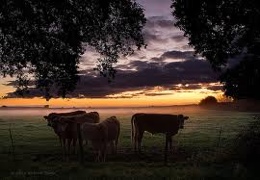Several years ago I wrote this set of poems as a gift to family and friends. I thought I would share them again. You will notice that Anna and Simeon are included but not the Magi; I wanted to include only those people from Jesus’ earliest days, not his toddlerhood. Yes, I am that Type A. Surprised?
I must also credit Willow Springs, in which the “Mary” installment first appeared.
If I don’t post until then, a blessed Christmas to everyone.
I. The Shepherd
Last night I watched another wet lamb
slide into the dark and beheld this same
drowsy beauty: a mother bending toward
her nursing young. New limbs trembling.
Matching rhythms of breath.
The angels told us to praise and adore.
I spend my life trying not to love
such small things. But again and again
I carry my new lambs and name them,
play songs for them on the reed pipe,
bind their broken legs and search for them
in the foothills, until they are sold and worn,
served up, split open on an altar
and I feel my own blood rushing to the edge.
II. Joseph
Of any birth, I thought this
would be a clean one,
like pulling white linen
from a loom.
But when I return to the cave,
Mary throws her cloak
over the bloody straw and cries.
I know she wants me to leave.
There he lies, stomach rising
and falling, a shriveled pod
that does nothing but stare
at the edge of the feeding trough
with dark, unsteady eyes.
Is he God enough
to know that I am poor,
that we had no time
for a midwife, that swine ate
from his bed this morning?
If the angel was right, he knows.
He knows that Mary’s swell
embarrassed me, that I was jealous
of her secret skyward smiles,
that now I want to run into these hills
and never come back.
Peace, peace, I’ve heard in my dreams.
This child will make you right.
But I can only stand here,
not a husband, not a father,
my hands hanging dumbly
at my sides. Do I touch him,
this child who is mine
and not mine? Do I enter
the kingdom of blood and stars?
III. Mary
The angel said there would be no end
to his kingdom. So for three hundred days
I carried rivers and cedars and mountains.
Stars spilled in my belly when he turned.
Now I can’t stop touching his hands,
the pink pebbles of his knuckles,
the soft wrinkle of flesh
between his forefinger and thumb.
I rub his fingernails as we drift
in and out of sleep. They are small
and smooth, like almond petals.
Forever, I will need nothing but these.
But all night, the visitors crowd
around us. I press his palms to my lips
in silence. They look down in anticipation,
as if they expect him to suddenly
spill coins from his hands
or raise a gold scepter
and turn swine into angels.
Isn’t this wonder enough
that yesterday he was inside me,
and now he nuzzles next to my heart?
That he wraps his hand around
my finger and holds on?
IV. The Angel
Oh, God, I am heavy
with glory. My head thunders
from singing in the hills.
This night will come once.
Enough bright lights.
Enough shouting
at shepherds in the fields.
Let me slip into the stable
and crouch among
the rooting swine.
Let me close my eyes
and feel the child’s breath,
this wind that blows
through the mountains and stars,
lifting my weary wings.
V. Anna the Prophetess
Widows of Jerusalem, I too was once
young enough to believe my life mattered.
When I woke, the sun rose for me. I tucked lilies in my hair.
Now I am eighty years a temple dweller.
What a wonder of faith! they proclaim. Truth is,
I cry in the dark. I beg priests for bread
and pick insects from my hem. But today,
an infant came to be blessed. He curled
into the crook of my arm, and when his eyes
wandered to mine, I remembered every hope
stored in my childhood’s heart: gazelles
and henna shrubs, doves perched in the crags.
I touched his face—
that skin we were meant to wear forever.
* * *
Widows of Jerusalem, this is what I know.
You are not dying. You are falling slowly
into another world, where bread will grow
from a thousand fragrant fields; where lilies
will clothe you in sunrisen petals;
where everyone will call you beloved child again.
VI. Simeon
As a boy, I lay awake
at night, jealous of the stars
that rose over my roof
and climbed into the lap of God.
They whispered to him,
and he whispered back.
He loved their cool blue devotion.
I prayed as the moon
traveled, as the night birds
sang in the cedars.
He is the Rock.
His works are perfect.
Upright and just is he.
But at sunrise, I always
felt alone. Perhaps
I didn’t pray long enough.
Perhaps my words
got trapped in the rafters.
Now I am old. Ah, bed,
receive these heavy bones.
I have seen my salvation.
I close my eyes, and warmth
spreads through my skin
like the laying on of hands.
Go ahead and rise, stars.
Whisper about the origins
of the universe, your secret,
holy fires. Tonight I will remember
the child I held to my chest.
I will pull my cloak to my face
and drift in the sweetness of milk.
Read Full Post »





